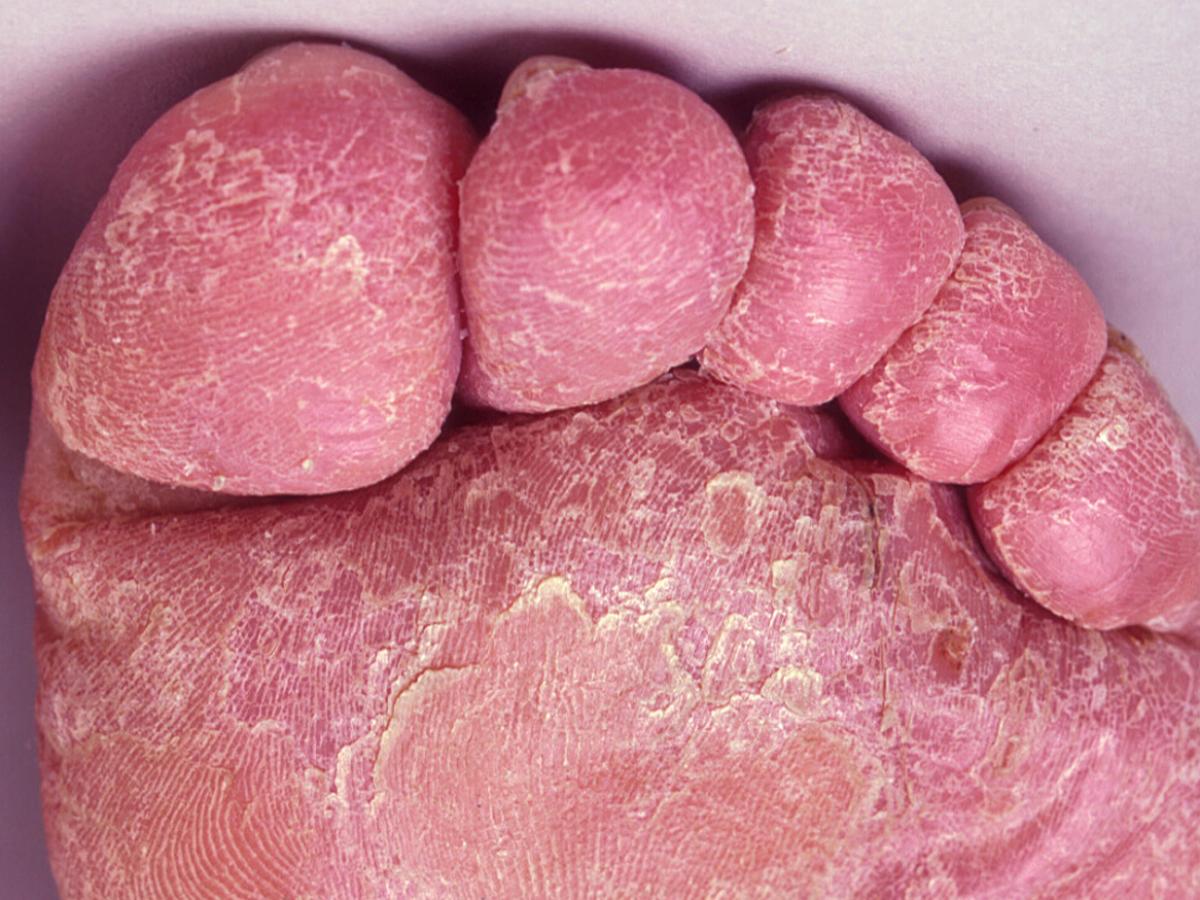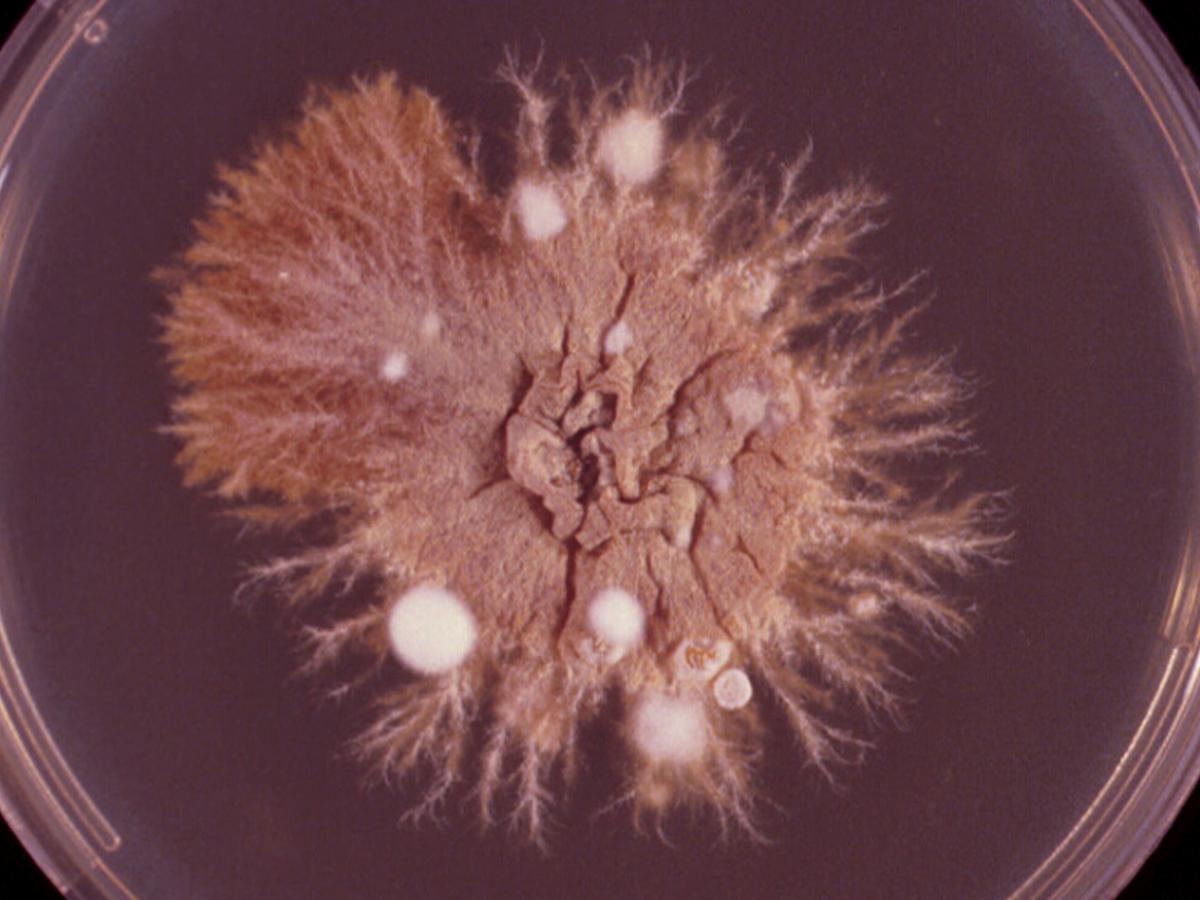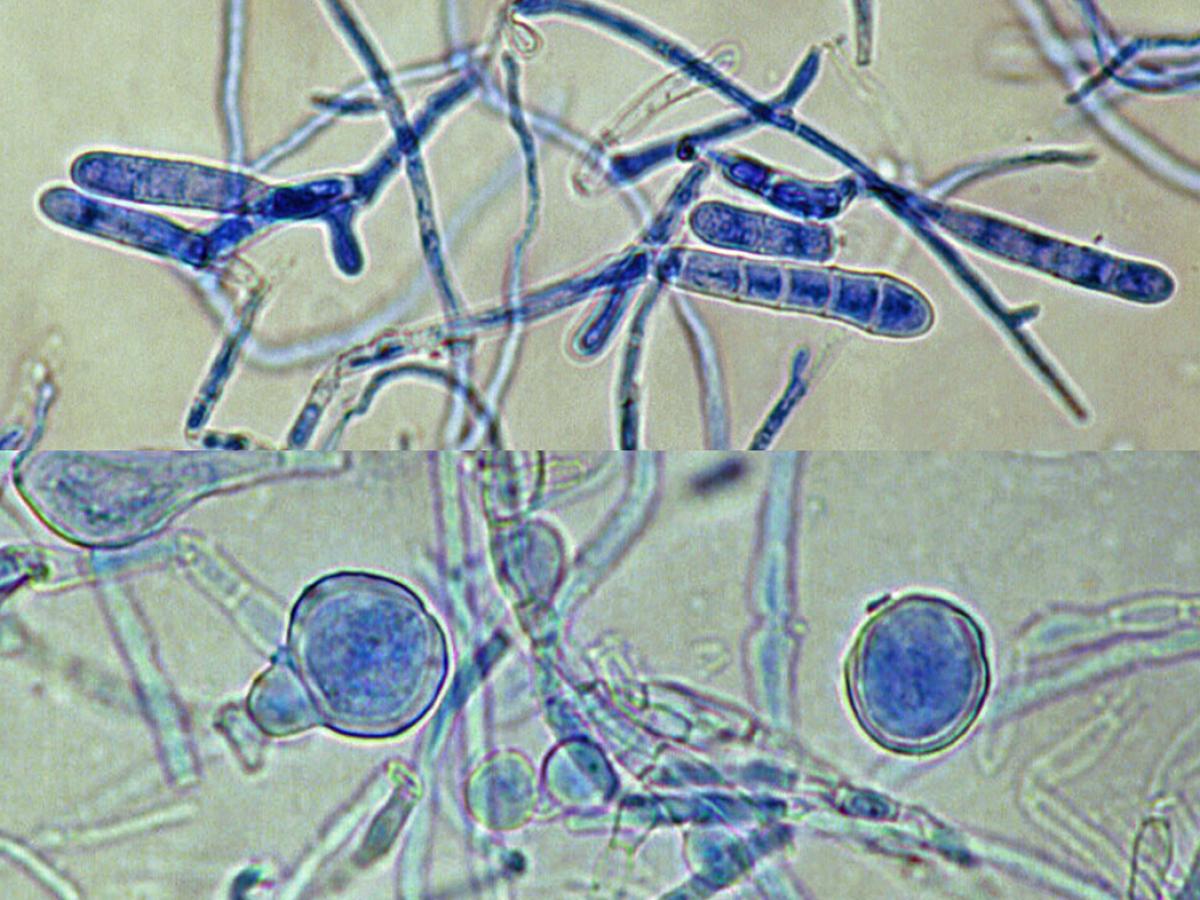Epidermophyton

Moccasin type tinea pedis caused by Epidermophyton floccosum.
Epidermophyton floccosum
Epidermophyton floccosum is an anthropophilic dermatophyte with a worldwide distribution which often causes tinea pedis, tinea cruris, tinea corporis and onychomycosis.
It is not known to invade hair in vivo and no specific growth requirements have been reported.
RG-2 organism.

Culture of Epidermophyton floccosum.
Morphological description:
Colonies are usually slow growing, greenish-brown or khaki-coloured with a suede-like surface, raised and folded in the centre, with a flat periphery and submerged fringe of growth. Older cultures may develop white pleomorphic tufts of mycelium. A deep yellowish-brown reverse pigment is usually present. Microscopic morphology shows characteristic smooth, thin-walled macroconidia which are often produced in clusters growing directly from the hyphae. Numerous chlamydospores are formed in older cultures. Microconidia are not formed.

Macroconidia and chlamydoconidia of E. floccosum.
Key features:
Culture characteristics, microscopic morphology and clinical disease.
References:
Rebell and Taplin (1970), Mackenzie et al. (1987), Rippon (1988), de Hoog et al. (2000, 2015).
